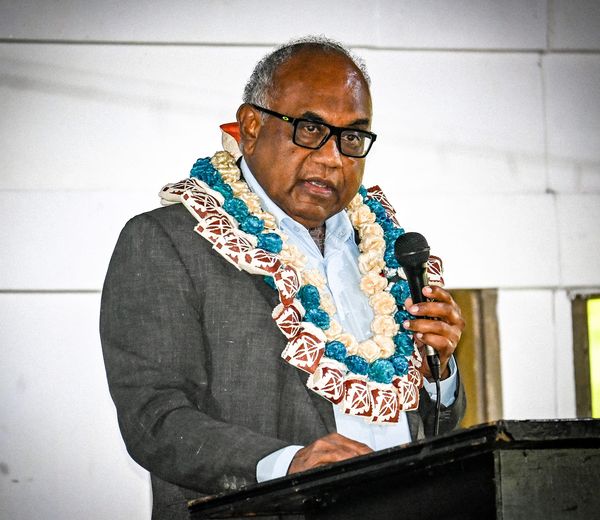 Fijian Civil Service
Fijian Civil Service
“Achieving Universal Health Care and promoting Healthy Islands across the nation rests on our ability to build and maintain a motivated and competent health workforce.”

Public Service Commission Chairman Luke Rokovada highlighted this while officiating at the two-day National Health for Human Resources Strategic Workforce Planning Workshop Program currently underway in Pacific Harbour.
Rokovada revealed that the Ministry of Health is dealing with a host of workforce challenges that have pressured its labour force, ultimately affecting healthcare delivery in the country.
“The
health workforce in Fiji is dealing with high vacancy rates, skill imbalance,
outward migration, burnout, minimal productivity and evolving workforce
demographics amongst others,” Chairman Rokovada stated.
Latest
statistics from the Ministry's data base indicate that the existing health
workforce is 84% against the total approved of established positions of 4345
and 54% against the national target of 5175 outlined in the MoHMS Workforce
Projection Report 2014-2024.
This
indicates that 16% of the approved established positions are vacant and the gap
against the national target is 46%.
“These
numbers tell a worrying story of the status of the health workforce and
explains the challenges we are now facing. Challenges that have a direct impact
on the life and well-being of our citizens,” Rokovada said.
PSC
Chairman revealed that he is concerned with the proliferation of nurse training
institution in the country many of which do not consult the Ministry of Health
prior to opening for business.
“There is an inherent risk of the quality and competency of Nurses
being compromised if nurse training institutions do not work closely with the
Ministry of Health and Medical Services,” Rokovada adds.
“As nurse training in Fiji is competency-based
and involves clinical training in the main hospitals—namely, CWM Hospital,
Labasa Hospital, and Lautoka Hospital—it is crucial to obtain the approval of
the Permanent Secretary for Health and Medical Services, as these major
hospitals fall under his jurisdiction.”
The Chairman adds that the Ministry of Health and Medical
Services should have a clear policy on the training of various categories of
nursing care, such as Enrolled Nurses, Nurse Aids, Nursing Practitioners,
Theatre Nurses, Oncology Nurses, Specialist Midwifery Nurses, Psychiatric
Nurses and other specialized nursing roles.
“These
Nurse Aids will do more than just help close or fill in the void left by those
nurses who have moved on to other professions or migrated. The assistance by
these nurse aids will allow nurses to focus on other specialty category of
nursing like oncology and theatre. As time progresses these nurses will become
more specialized in these areas therefore closing the skills imbalance,”
Chairman Rokovada adds.
Meanwhile
the two-day workshop provides an opportunity for health workforce stakeholders
to dialogue, strategize and draft a 10-year National Human Resources for Health
(HRH) Strategic Plan for Fiji to elevate public health care service for all
Fijians.
THE END